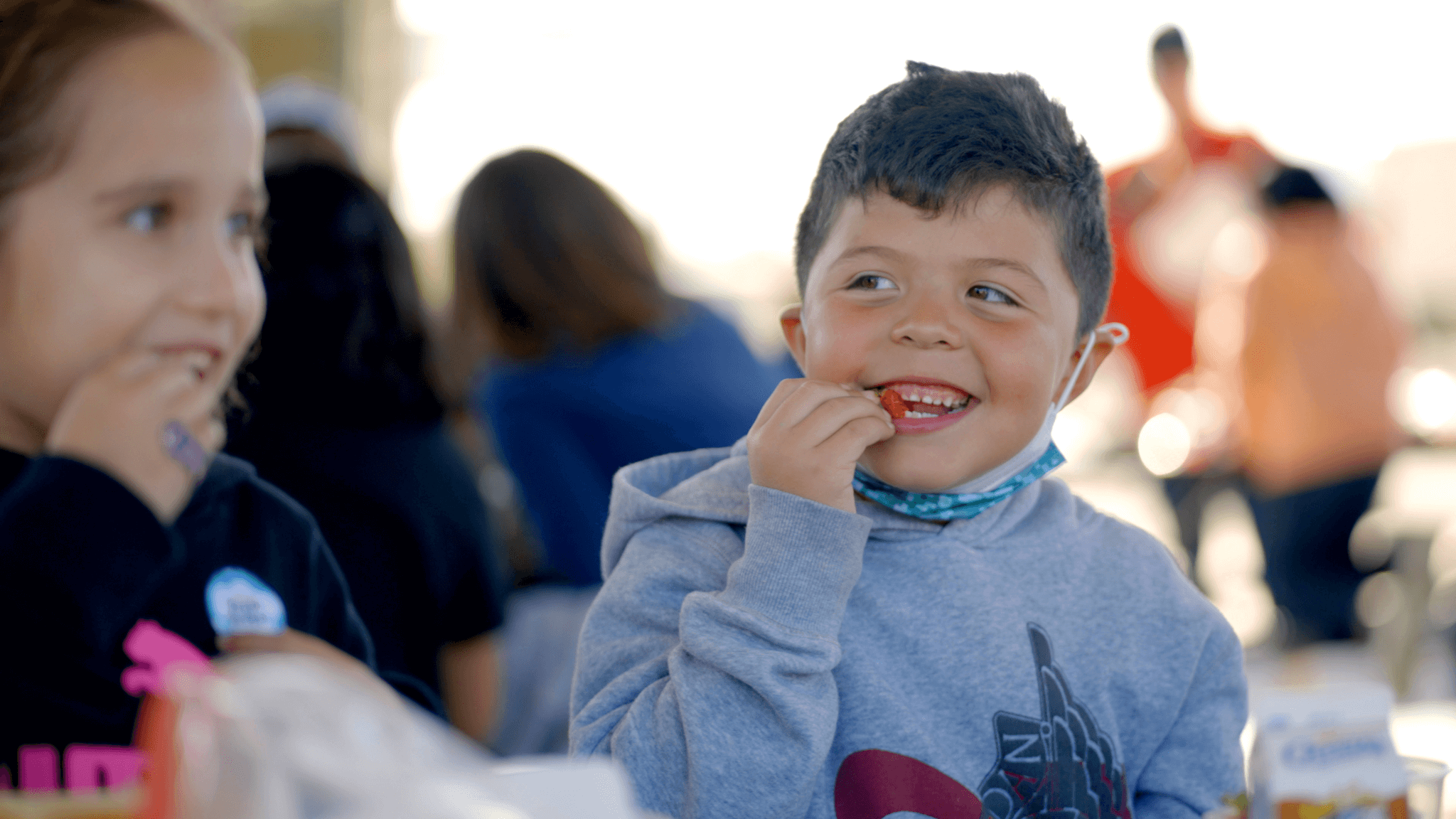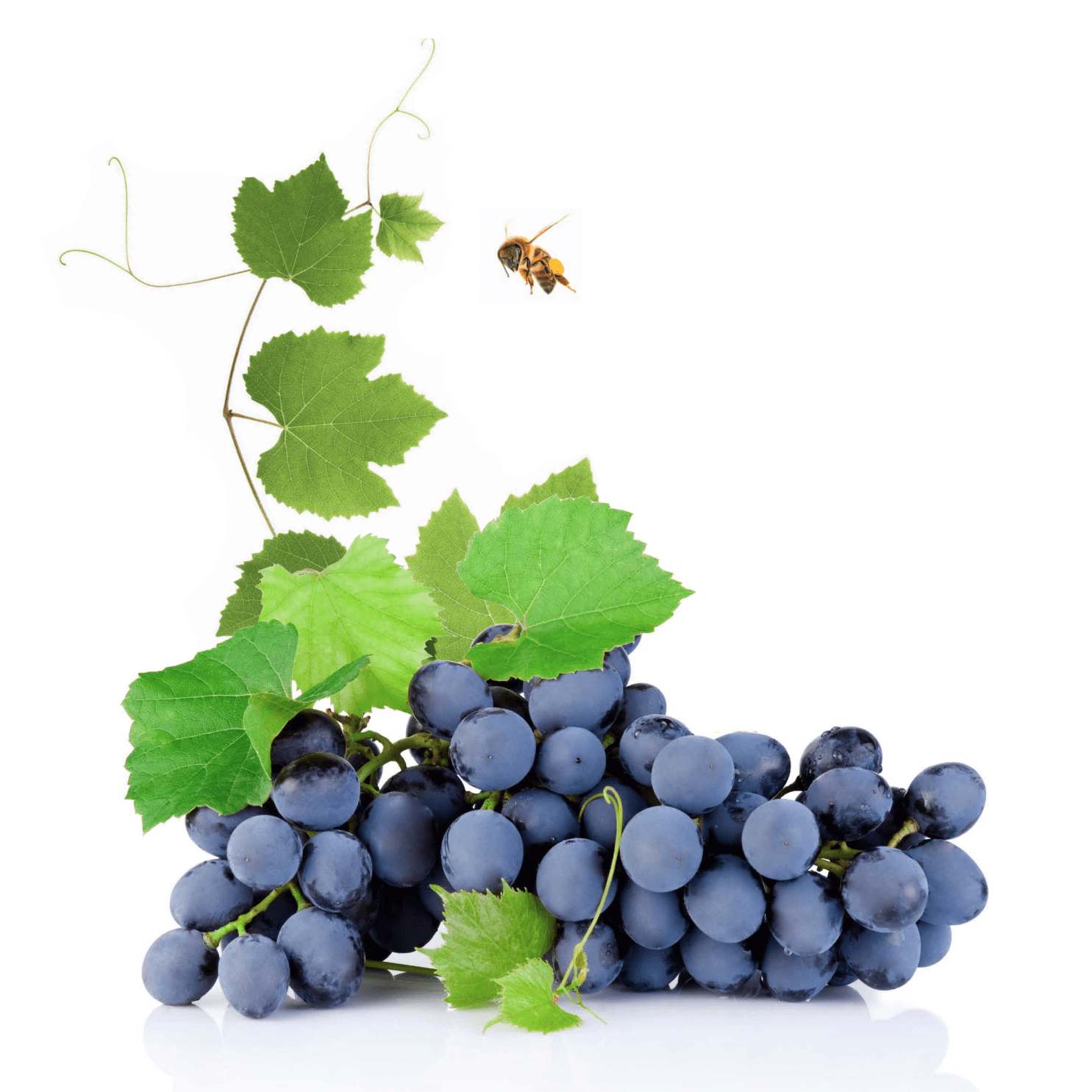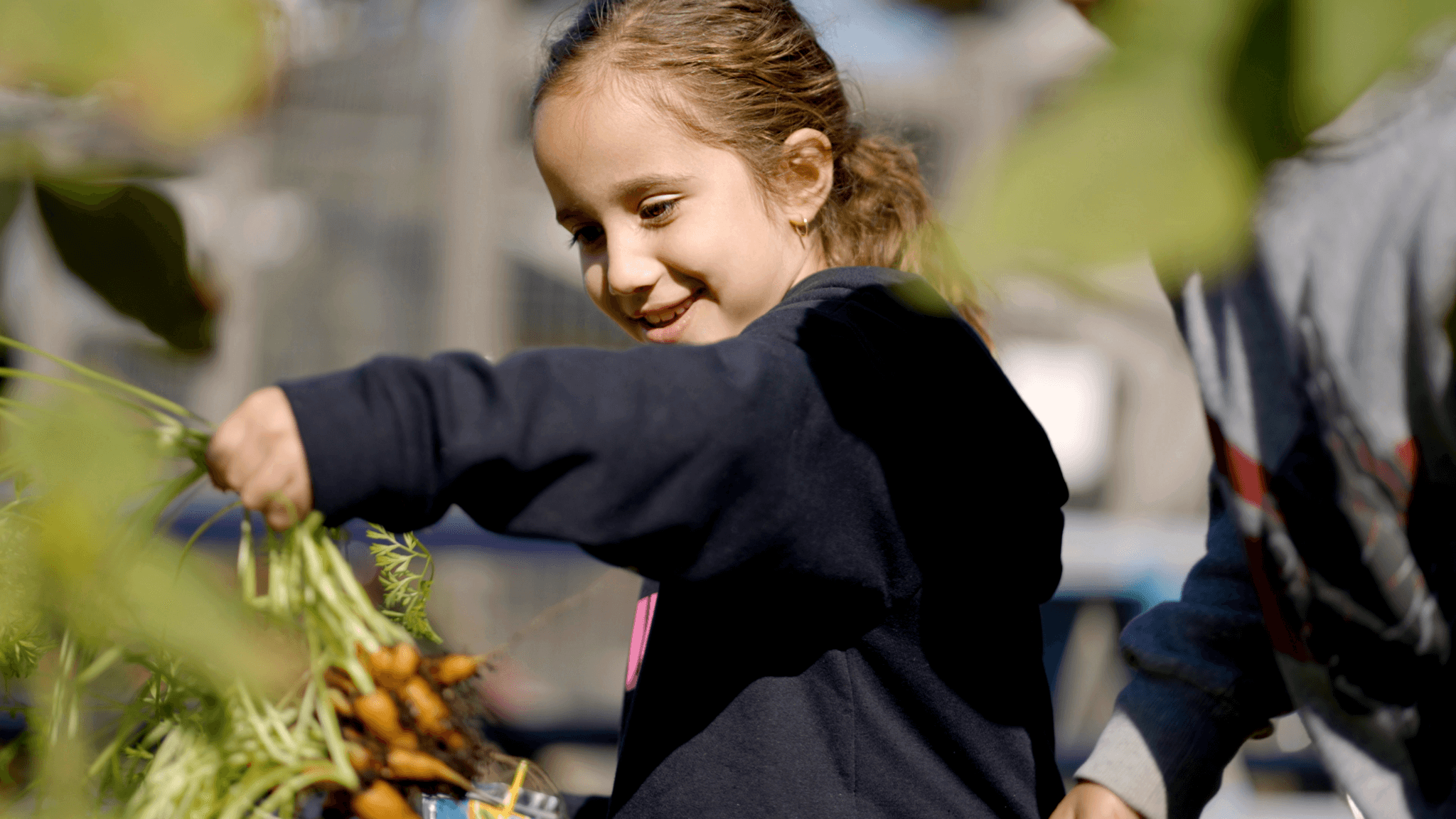Imagine a generation of students that experiences and understands how nature sustains life, is aware of the relationship between our food systems and climate change, and is inspired to live in ways that benefit people and our planet. Learning about how food and climate systems interact and how different communities are differently impacted by our changing environment is critical education for our young people.

What is more universally experienced or viscerally understood than food? Food connects to every kind of learning—in science, math, social studies, the arts, and more. And by connecting the cafeteria, classroom, and garden, we nourish our students with transformational education experiences.
For over twenty-five years, the Center for Ecoliteracy has been a leader in ecological education, advancing the teaching and modeling of sustainable practices in schools. Beginning with our first major partnership—the Edible Schoolyard—we have nurtured relationships and the capacity of K–12 schools to support healthy and sustainable school communities and lasting school food systems change. In our book Smart By Nature: School for Sustainability (Michael K. Stone/Center for Ecoliteracy, Watershed Media, 2009), we outline four principles that have guided our work and that have many applications in ecological education:
- Nature is our teacher. Human societies and institutions, including schools, can be modeled after the patterns and processes found in sustainable ecosystems. Understanding how nature sustains ecosystems does require basic ecological knowledge, but by focusing on ecological principles, teaching is integrated across disciplines and between grades.
- Sustainability is a community practice. Nature sustains life by creating and nurturing communities. Animals, plants, and microorganisms live in webs of mutual dependence. People also require each other for emotional and physical support. Qualities that keep natural ecosystems vibrant and resilient, such as diversity and interdependence, shape healthier schools and other human communities as well.
- The real world is the optimal learning environment. Students learn more when their actions have meaning and matter to someone else. In schooling for sustainability, students connect with the natural world and human communities through project-based learning, which inspires them to learn in order to accomplish something they care about. They also learn that they can make a difference.
- Sustainable living is rooted in a deep knowledge of place. Place-based education is fundamental to schooling for sustainability. When students understand the ecology and diversity of a place, the web of relationships it supports, and the rhythm of its cycles, they develop appreciation and a sense of kinship with their surroundings. Places known deeply are deeply loved, and well-loved places have the best chance of being protected and preserved for future generations.

Putting these principles into practice can ignite students’ curiosity as they discover that the food on their lunch tray begins with seeds in the ground and as they watch food grow in their school gardens and witness the insects that pollinate our food. Following are some of our resources that enhance students’ learning:



The Center for Ecoliteracy is honored to partner with Ten Strands and the San Mateo County Office of Education to bring our guiding principles to California’s first statewide K–12 curriculum on climate change and environmental justice. We are developing the sixth-grade unit for the Climate Change and Environmental Justice Program that uses food and food systems as a way for students to investigate how living organisms are changing the Earth’s climate and how Earth’s changing climate conditions are impacting food systems.

Students will learn how global warming affects food systems. They will learn how it affects all people but not all people in the same way. Students will investigate global warming’s influence on the food we eat, the people that grow it, and the people who eat it. They will draw models of food systems and discuss points in the system where climate change is having the most impact and for whom. At the end of the unit, students will be well versed in the relationship between climate change and food systems.
This spring, we look forward to piloting the curriculum with sixth-grade teachers and facilitating feedback to ensure our materials are inclusive and relevant to sixth-grade students. Learn more about our work at ecoliteracy.org, and follow us on Twitter, Instagram, Facebook, and LinkedIn.

